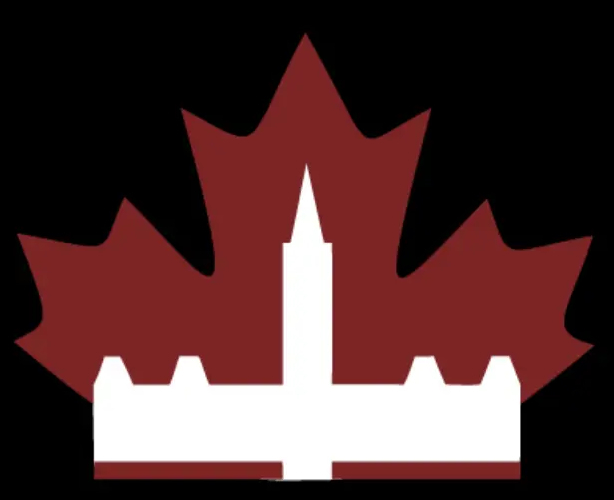The image is an infographic titled “The Liberal’s Broken Promise: Electoral Reform” that displays a vertical timeline with colored dots and information boxes chronicling electoral reform events in Canada.
The timeline shows six key events:
-
June 2015 (pink dot): Campaign Promise - Justin Trudeau pledges: “We are committed to ensuring the 2015 election will be the last election using first-past-the-post.”
-
October 2015 (blue dot): Election Victory - Liberals win a majority government with 39.5% of the popular vote, securing 184 seats (54% of the House of Commons).
-
June 2016 (light blue dot): Special Committee Created - The Electoral Reform Committee (ERRE) is established to study options. The committee conducts consultations across Canada.
-
December 2016 (red dot): Committee Recommendations - The ERRE recommends proportional representation. 88% of electoral experts consulted favoured proportional representation.
-
February 2017 (blue dot): Promise Abandoned - PM Trudeau abandons electoral reform, claiming “no consensus” despite clear committee recommendations and public consultations.
-
October 2024 (black dot): Looking Back - Trudeau admits he should have “immediately shut down talk about proportional representation” and that Liberals were “deliberately vague.”
Below the timeline is a “Key Statistics” box showing:
- 63% of voters cast ballots for parties promising electoral reform
- 80% of town hall participants asked for proportional representation
- 71% wanted parties to govern together
The infographic includes a Creative Commons license icon in the bottom left corner and a QR code in the bottom right. The footer cites sources: House of Commons Special Committee on Electoral Reform, Fair Vote Canada, Policy Options.


Security clearance should not be administered by any independent anything. It needs to be done by the intelligence arm of the government that has access to everything they need to access. Any candidate that won’t apply should not be able to run. Period.
What party do you think who has any chance of forming a majority government will fix our broken FPTP electoral system?
By “independent”, that means free from undue influence from other branches of government
Security clearances can play an important role in our electoral system, but must be carefully designed. If failing a clearance disqualifies candidates, then several critical safeguards must be in place.
The clearance process must be:
Having the intelligence arm of the government administer clearances without independent oversight creates dangerous potential for abuse. Intelligence agencies should provide information, but final determinations should be made by a body insulated from political pressure from the executive or legislative branches.
As for your second question about electoral reform - the math is clear. Neither the Liberals nor Conservatives have demonstrated genuine interest in proportional representation. The Liberals have repeatedly promised reform (since 1919!) only to abandon it once in power. Trudeau’s explicit admission that they were “deliberately vague” to appeal to electoral reform advocates speaks volumes.
The only parties consistently supporting proportional representation are the Green🟢/NDP🟧/Bloc⚜️. None may form a majority government under our current system precisely because FPTP systematically disadvantages smaller parties.
That’s the catch-22 of electoral reform: the parties that benefit from the broken system have no incentive to fix it. This is why focusing on principled candidates who support PR, regardless of their chance of forming government, is so important.
Remember, in a democracy, citizens are deserving of and entitled to representation in government. Only PR can dependably deliver that.
I won’t even remotely consider voting for anyone who refuses to apply for and receive security clearance because having it is essential to running the country. The system currently in place is fine, no need for your ai-generated utopian wish.
Parties at the bottom of the polls can promise literally anything in their platform, it’s irrelevant because they’re not going to form government.
This election is do or die for our sovereignty, for our economy, and likely for our very existence. We face an absolutely real threat, and now is not the time to let vote splitting allow the conservatives to win.
I used to vote conservative, but I will never vote for a party with a “leader” that is like a dollar store version of Trump, who parrots many of the same bullshit talking points, including the use of childish nicknames for people. The refusal to apply for a security clearance is shady, and implies that he’s hiding something.
I will never support a party that wants to take away people’s rights, whether women, visible minorities, lgbtq, or anything else. Don’t even get me started on healthcare.
The government is to support the citizens, not to remove rights and cause harm.